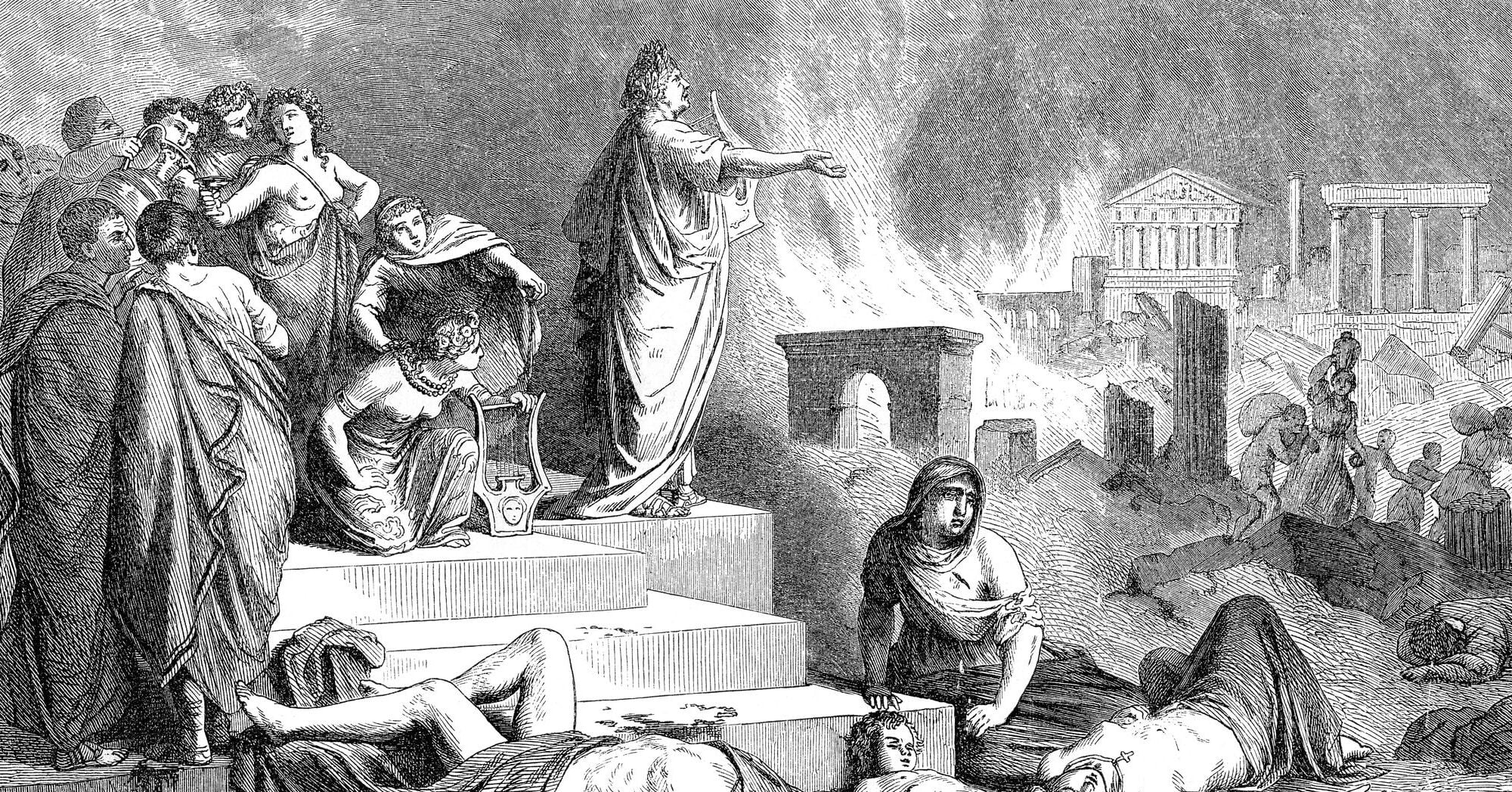According to popular legend, the mad emperor ordered his own capital to be set on fire, wanting to build a new city in its place. We have verified the validity of such accusations.
The image of the Roman Emperor Nero, who set fire to Rome and watched the fire from a hill near the city, has firmly established itself in popular culture. This story gained considerable popularity thanks to novel Henryk Sienkiewicz's "Camo Coming", in which the emperor repeatedly complains about the shortcomings of Rome and wants to rebuild the city. In honor of Nero named and Nero Burning ROM for CD burning. Authors of popular science books also express suspicions about Nero. For example, Mikhail Kubeev in “100 Great Mysteries of History” writes, that “judging by the emperor’s violent temper and his complete intemperance, he could well have burned down his city.”
We know about the accusations against Nero primarily from ancient sources. For example, Tacitus in the Annals writes about the fire in Rome: “A terrible disaster, accidental or orchestrated by the intention of the princeps, has not been established (both opinions are supported by sources).” At the same time, Nero, according to the same author, was at that moment in his country villa. Although the historian avoids definitive interpretation, he also reports that, despite the fairly rapid restoration of the city, the rumor of the emperor's involvement was popular among the townspeople. According to Tacitus, in order to combat the “rumor that dishonored him,” Nero accused Christians of arson, after which their numerous and very sophisticated executions began.
A more radical version can be found in Suetonius's Lives of the Twelve Caesars. The author is direct accuses in the fire of Nero: “As if he was disgusted by the ugly old houses and narrow crooked alleys, he set fire to Rome so openly that many consulars caught his servants in their courtyards with torches and tow, but did not dare touch them; and the granaries, which stood near the Golden Palace and, in Nero’s opinion, took up too much space from him, were as if first destroyed by military machines, and then set on fire, because their walls were made of stone.” At the same time, according to the historian, the emperor “looked at the fire from the Maecenas Tower, enjoying, in his words, the magnificent flame, and in theatrical attire sang “The Collapse of Troy” (a song of his own composition. - Ed.).”
Let us note that both of these ancient testimonies belong to a later era. Tacitus during the fire was still a child, and Suetonius was born several years after the devastating disaster. Modern researchers note, that the description of Nero as a reckless and even insane ruler could rather correspond to the conjuncture of the times of Tacitus and Suetonius than to real events, especially since the versions presented by them are somewhat different. For example, in Tacitus the fire and the execution of Christians are directly connected, but in his colleague they are not.
Modern historians tend to doubt that Nero ordered the burning of his capital. Anthony Barrett of the University of British Columbia in Rome Is Burning: Nero and the Fire that Ended a Dynasty admitsthat the evidence of those events that has reached us is extremely scarce, and archaeological finds do not provide a clear answer. At the same time, the researcher calls Nero’s participation in the tragedy “extremely unlikely,” because the arson seemed illogical and difficult to accomplish. Rumors about the emperor’s involvement did not appear out of nowhere. Nero involved to the murders of his own mother and wife, therefore he approached the role of the culprit, whom the townspeople, who had lost their shelter and means of subsistence, were so looking for. Similar assessments adheres to and John Drinkwater of the University of Nottingham, author of the monograph Nero: Emperor and Court.
Most likely not true
- J.Levine. The new, nicer Nero
- M. Giles. Nero Fiddled While Rome Burnt
- Arzamas. Conspiracy theories: from Antiquity to the present day
- Is it true that the Roman Emperor Caligula made his horse a senator?
If you find a spelling or grammatical error, please let us know by highlighting the error text and clicking Ctrl+Enter.







